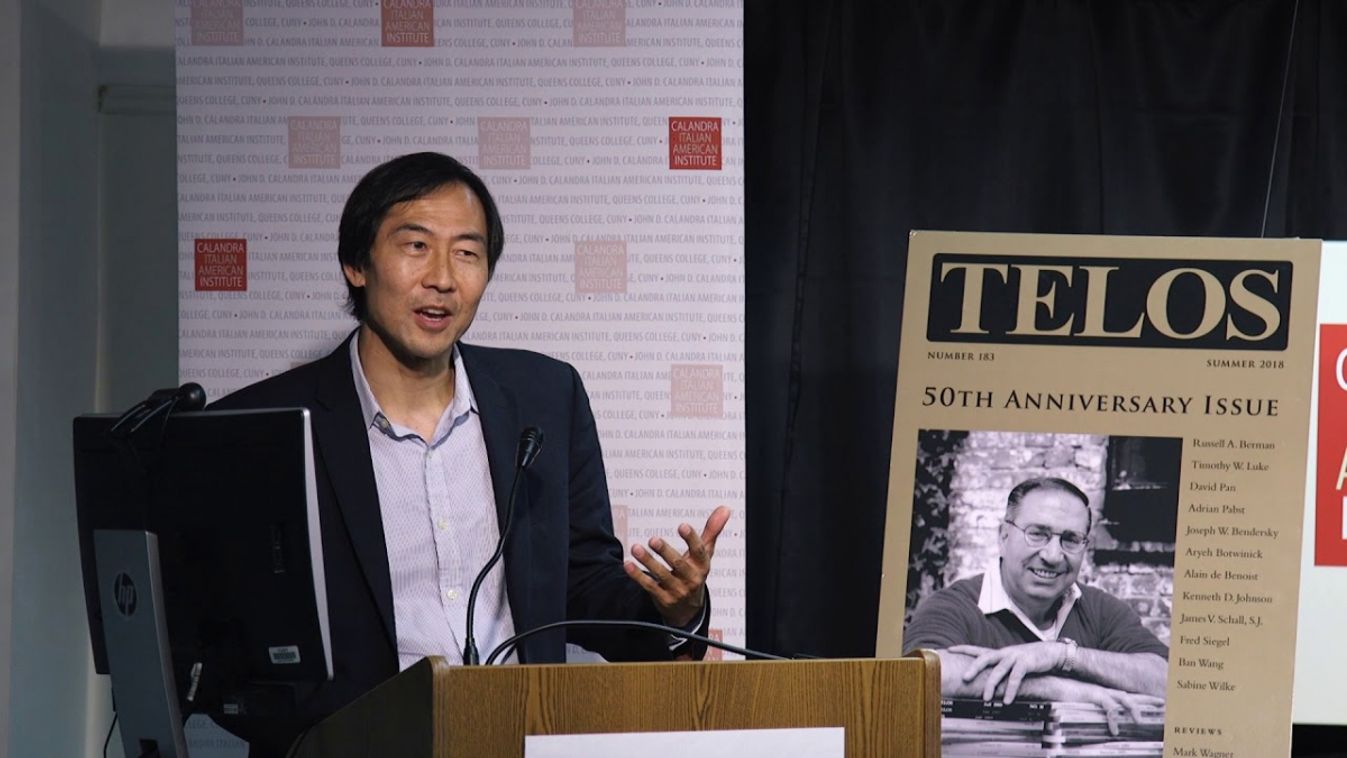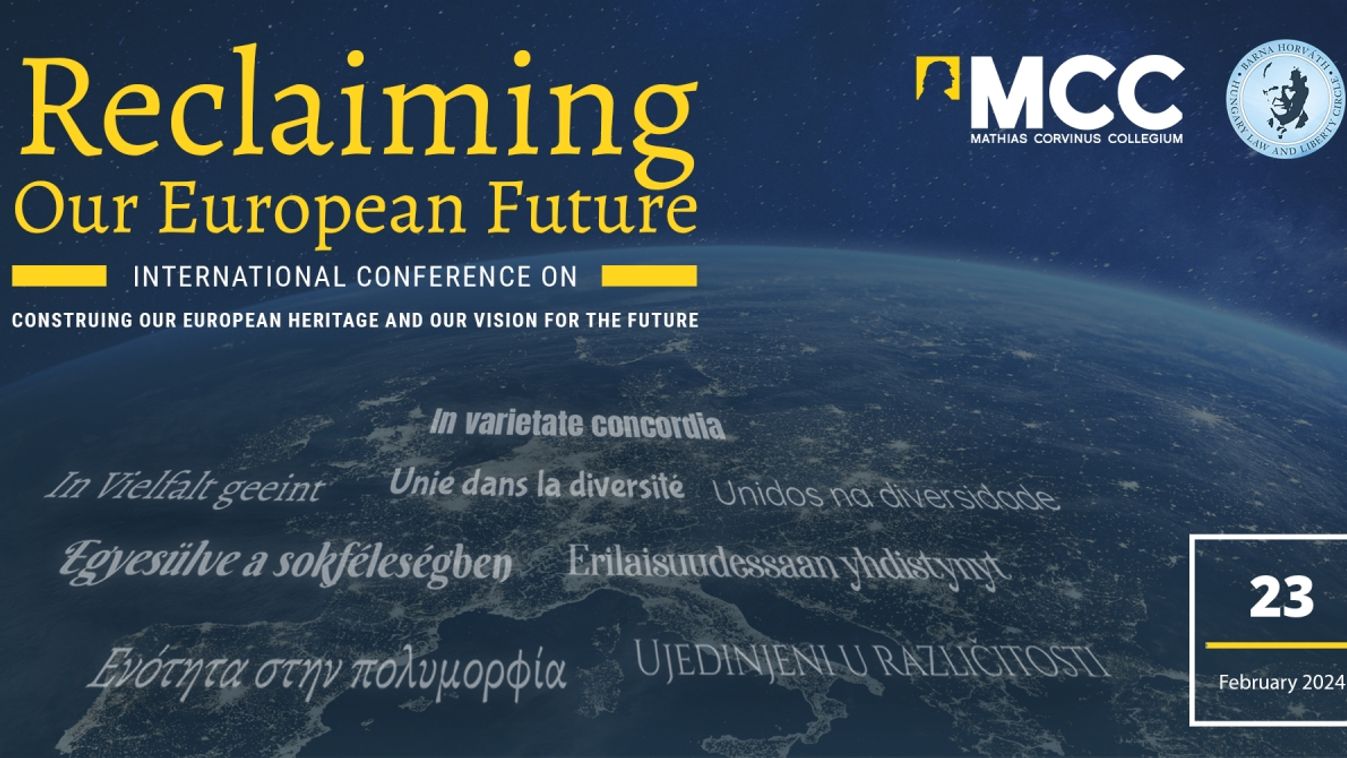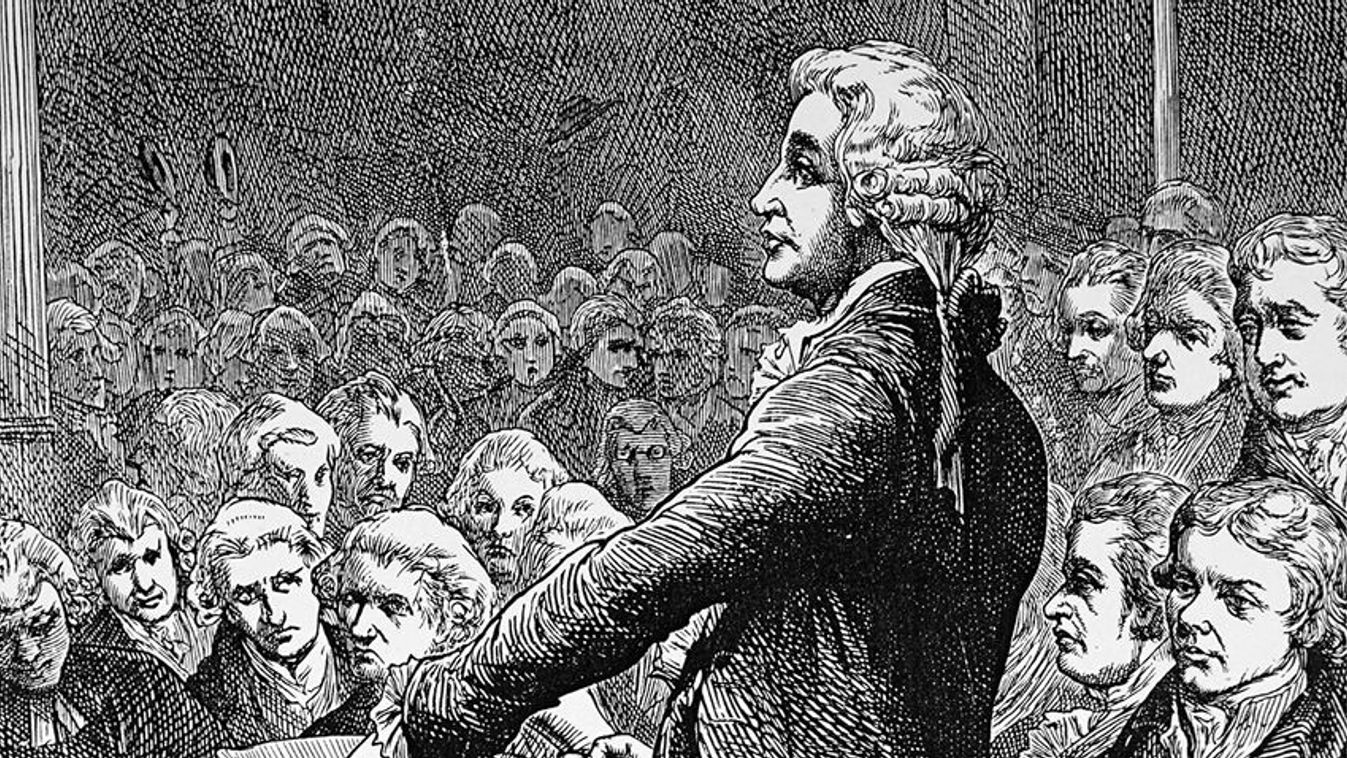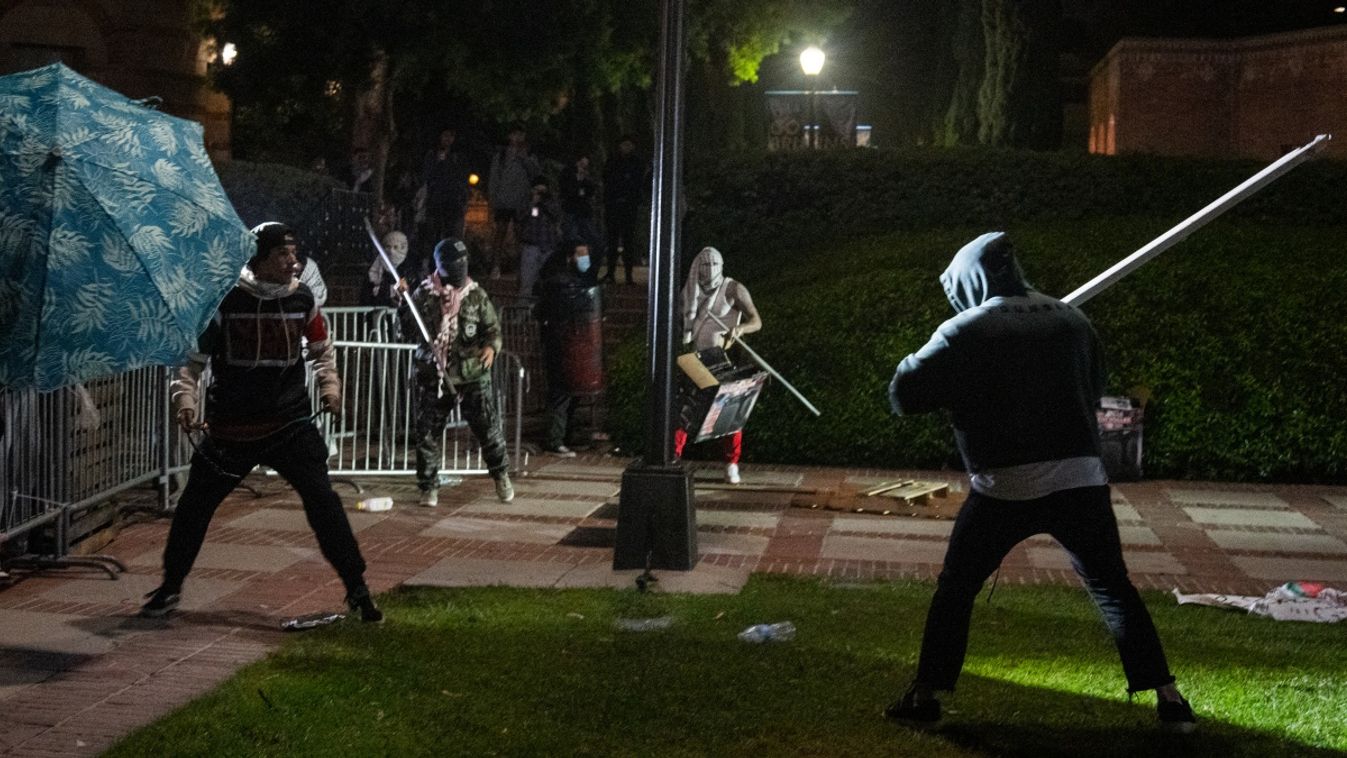David TSE-CHIEN PAN (BA Stanford University; PhD Columbia University) is Professor of German at the University of California, Irvine. His work engages deeply with European philosophical and literary traditions. A central idea in his scholarship involves how our values have an independent standing and cannot be reduced either to material conditions or to ideal claims.
You have served as Member of the Commission on Unalienable Rights that recently published its final report. Why, in your view, was the establishment of such a Commission important and timely?
The Commission agreed that the initial impulse was that even though human rights have been established and agreed upon worldwide, there continued to be egregious human rights violations around the world.
One of the main goals of the Commission, therefore, was just to draw attention to the issue of human rights
and to insist that it should be at the forefront of our minds as humans and as American citizens. It was also tasked with thinking through the ways in which U.S. foreign policy should not lose sight of human rights principles. We welcomed the fact that the Trump administration and Mike Pompeo were interested enough in human rights to launch this project and establish the Commission.
Can you shed some lights on the purpose and mission of this Commission?
I think there are three basic challenges that we saw ourselves trying to address. The first one was to address the U.S. foundations, which is to say how to make human rights relevant to the American people and maintain a kind of interest and vigilance on the part of Americans. Ultimately, this is going to be the basis of US foreign policy. The commission attempted to emphasize how human rights are really intertwined with the American political tradition and the key political struggles in American history. Second, the commission sought to counter the claim that human rights are not universal and instead only an expression of a particular culture. This point was important to make because human rights as a set of ideals are currently being assaulted ideologically. The third basic issue we had to address is the meaning of human rights for US foreign policy.
The key argument we ended up making is that progress in human rights has to be driven by moral and political commitments that can be defended through a nation-state’s foreign policy.
While international law and treaties can create an excellent legal framework for human rights, we cannot rely primarily on legal processes in order to defend human rights. Because human rights rely on judgments based on individual conscience, they have to be established on a moral level and lead to concrete political action. Therefore, a key aspect of the goals was to orient our moral and political judgments and actions around human rights.
You mentioned that egregious violations of human rights are still a major threat around the world. On the other hand, we can experience burgeoning claims of human rights and as Jonathan Sacks pointed out, human rights has become the dominant mode of discourse. This, of course is another threat to the human rights. How, in your view, one can distinguish between true and false claims of human rights?
The report orients itself around the Universal Declaration of Human Rights as the primary means of judging different rights claims. Part of the power of the UDHR lies in the way that it has achieved a world-wide consensus regarding human rights. The UDHR provides a minimum standard for human rights that has been agreed upon by the entire world, and the rights that it enumerates can be taken as definitive for making current judgments. Consequently, any new rights should align well with the existing structure of the UDHR and achieve the same level of consensus that the UDHR enjoys.
If we are too quick to recognize a new human right, we would be suppressing the political debate by which a consensus can be achieved.
Without such a general agreement about the validity of a human right, the human rights project loses legitimacy.
What you are saying on the converging but nevertheless different ways of arriving at human rights reflects the thought of the famous French Catholic philosopher, Jacques Maritain who once said regarding the UDHR: “many different kinds of music could be played on the document’s thirty strings.” However, many experts are of the opinion today that there should be a single and unified model of human rights regime for the entire world; this is what the transnational character of human rights demands. How, in your view, uniformity and universality be rightly distinguished?
One thing the Commission agreed on is that we have to think of human rights as pre-political and pre-legal. There is a level of morality and of conscience that is at the basis of judgments about human rights even without an officially established framework. A human rights perspective should make it possible for people to stand back and be able to judge laws. This level of conscience has to be the foundation of human rights because human rights violators will often pass laws that support their goals. At the same time, it is also true that judgments about human rights cannot be made universally; they have to be made by the people that are in the particular situation at hand.
Each cultural tradition has to be able to arrive at these principles on its own.
Although we emphasized the pre-political character of human rights, we were careful not to privilege any one tradition in defining the origin and foundation of human rights. We agreed that every tradition has the resources for making the moral judgements that would naturally converge towards human rights. Thus,
each tradition has the potential of arriving at human rights, but different traditions have their own ways of doing that.
In this vein, we, in the Commission, tried to maintain a balancing act in the final report of insisting on the universality of human rights without defining the particular way in which each culture should justify them. Such considerations do not, however, justify transgressions against the human rights outlined in the UDHR.
The UDHR provides in its structure a set of guidelines for establishing a balance between the universality of human rights and the specificities of different cultural traditions. While the UDHR has to be taken as a unified whole and cannot be taken apart, the document does differentiate between levels of conformity to a single set of practices. There are a few rights that are non-derogable, and so, for instance, there is no room for variation in the case of genocide, torture, or slavery. In contrast, there are other rights that do not belong to this category, and there can be some variation in fulfilling their ultimate goals. In the case of civil and political rights such as the freedom of expression or freedom of religion, there may be some limited circumstances under which those rights can prevail and can be implemented differently. The pandemic has justified some temporary limits on freedom of assembly and worship, for instance. The social and economic rights depend upon resources available to a particular country, and there will be variation also in terms of philosophies of the best way of supporting social and economic rights. There are certainly more socialist versions of defending those rights but there are also more free market versions of defending them. As long as there is a consistent will to promote those types of rights, a variation clearly has to be accepted.
What are the roles of subsidiarity and pluralism in international human rights?
The report supports the idea that the defense of human rights should occur at the most local level possible because human rights are ultimately about the way individuals treat each other. It is
only when there are uncorrected violations at such a local level that a higher level of hierarchy would need to intervene in order to correct abuses.
For example, unjust discrimination in a workplace should be addressed first at the level of those in authority in that workplace. If such attempts fail, then one should be able to appeal to local laws. If local laws are themselves discriminatory, then one should be able to appeal to national laws. If those national laws are discriminatory, then that would be the point were the citizens of that nation should be able to appeal to international bodies and opinion in order to bring pressure on the national authorities.
You pointed out the significance of variation and the final report of the Commission emphasizes the importance of the nation-states and defends national sovereignty as vital to secure human rights. Can you shed some lights on the considerations of the Commission?
This is a key part of the Report that drew the criticism that the focus on national sovereignty is an invitation for nation states to exempt themselves from human rights. The critiques considered national sovereignty to be inherently hostile to the commitment to human rights. My response here is that
human rights as a set of practices really have to be implemented and carried out by the people that are on the ground and most affected by human rights abuses.
A legal commitment to an ideal of human rights is not enough. A concrete struggle in order to realize human rights is essential.
The nation state is the level on which human rights can be best realized.
This requires sovereignty. It requires that the people that are involved express and act according to their conscience. This popular sovereignty is linked to democracy but is also linked to the nation-state as the institutional embodiment of a democratic will. Since the nation state embodies in our world today the level on which political decisions are made, it is also the place of responsibility for actions on a collective political level. Human rights can be undermined when state power goes unchecked but also when state power is undermined and a country descends into lawlessness.
Since the defense of human rights also involves the taking of risks in support of ideals, sovereignty is also required in order for such risks to be taken. Let’s take the example of the recent assassination attempt against the Russian opposition politician, Alexei Navalny. Germany was forced to make a decision about whether they would continue to cooperate with Russia on the building of the Nord Stream 2 Pipeline. That kind of decision, in which Germany would respond to a human rights violation with an action that also hurts German economic interests, cannot be made by an international court. This type of decision is one that the nation has to make on its own. It is a collective political decision. Because they are constituted as the institutions of political identity nation-states are the only entities that can make such decisions, and they must be held responsible for these types of decisions as well. The importance of nation states derives from their role as the place of democracy and sovereignty.
Human rights are not primarily about legality but rather moral commitments and morally informed actions on a collective political level. That is the place of nation state sovereignty.
aw can of course play an important role in codifying sovereign decisions, but laws cannot take the place of sovereignty.
Since it has alleged human rights implications, how would you approach the current debate on the question of rule of law in the European Union?
This question relates to the structure of the European Union as well as to the status of national sovereignty in dealing with human rights. The difficulty is that the European Union is not itself a nation, and it has not yet developed such a sense of collective identity that there would be EU-wide laws and courts that would directly regulate such issues as freedom of speech or the rule of law. At the same time, the EU is trying to establish a framework for financial support that goes to individual states within the EU. It makes sense that those two issues should be coupled in a nation-state, but the EU has been unable to establish its sovereignty in these areas because its peoples lack a sense of collective identity.
One of the aspects of national sovereignty is that it includes a mythic conception of who the people are and how they are connected together.
Unless the EU, as union, is able to develop that conception of being a collective and a nation in that sense, it is not going to establish the kind of moral and political decision-making that would allow it to be more responsible for human rights within its borders. The United States functions as a nation-state because it has developed its collective political identity to the point where people do not really question that everyone in the US belongs to a unified historical and political tradition. In order to follow the US path, the EU would have to establish more sovereignty over its individual member states, with the possible consequence that some of those states that reject the loss of sovereignty will have to leave the EU. It is possible that the EU will be able to establish such a common political culture. Without such a consolidation of sovereignty at the EU level, the EU will have to give up on moves toward unifying fiscal and monetary policy. It would have to reduce transfer payments and possibly abandon the unified currency.
However, even in the United States this was a long and quite a rough process…
The real inflection point for the establishment of national sovereignty in the U.S. was during the American Civil War. States rights were restricted by the imposition of national sovereignty. The Northern States won the war against the South, and, through constitutional amendments, they imposed the constitutional basis for federal power to supersede state power. However, such a transformation requires the ability of a particular conception of the collective to establish itself. The American Civil War was the most traumatic experience the United States has ever gone through. Such a transformation could involve something like a civil war. Although it does not have to come to such extreme violence, the example shows very well the seriousness of the problem. Today, in the United States, the decisions that are made on the national level reflects a collective decision–making. However, that does not seem to be the case in the European Union, whereas it does seem to hold in the case of the individual nation states within the European Union. This became quite clear during the pandemic.
With the adoption of its final report, the Commission made a great endeavor. What are the principal “lessons learnt” from the work of the Commission?
There were a lot of conflicting views within the Commission about all these questions we have just gone through. Sometimes we had heated discussions even though we were all committed to the human rights project. However, through these discussions, we were ultimately able to converge on a final draft of the Report, and I think all of us were happy with the results. It is a compromise document, but it also takes clear positions on controversial issues. So one of the lessons I learned through that process was that
there are a set of convergent principles and strategies for thinking about the way to promote human rights.
There are obviously debates about these issues, but I was encouraged by the way in which people with different perspectives were able to converge on ideas about how to maintain a focus on human rights in all of our endeavors. It should be part of our existence as human beings to maintain that sense of justice in whatever legal or political conditions we might find ourselves in.























